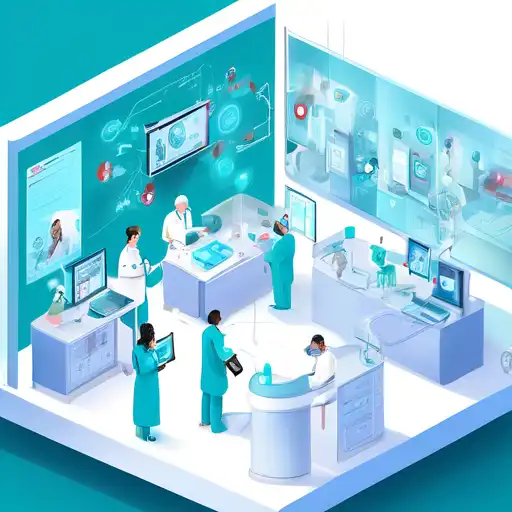The Revolutionary Role of IoT in Healthcare
The Internet of Things (IoT) is revolutionizing healthcare services by enabling smarter, more efficient, and personalized patient care. By connecting medical devices, wearables, and healthcare systems, IoT is paving the way for innovations that improve patient outcomes and streamline healthcare operations.
Enhancing Patient Monitoring with IoT
One of the most significant contributions of IoT in healthcare is the ability to monitor patients in real-time. Wearable devices can track vital signs such as heart rate, blood pressure, and oxygen levels, transmitting this data directly to healthcare providers. This continuous monitoring allows for early detection of potential health issues, reducing hospital readmissions and improving patient care.
Improving Medication Management
IoT devices are also transforming medication management. Smart pill bottles and dispensers remind patients to take their medication on time and alert healthcare providers if doses are missed. This technology ensures adherence to treatment plans, significantly improving the effectiveness of therapies.
Streamlining Healthcare Operations
Beyond patient care, IoT is optimizing healthcare operations. Asset tracking systems use IoT to monitor the location and status of medical equipment, reducing losses and improving efficiency. Similarly, IoT-enabled inventory management systems ensure that medical supplies are always available when needed, preventing shortages that can impact patient care.
Facilitating Remote Healthcare Services
IoT is a cornerstone of telemedicine, enabling remote consultations and diagnostics. Patients in rural or underserved areas can receive quality care without the need to travel, thanks to IoT devices that collect and transmit health data to specialists anywhere in the world.
Challenges and Considerations
Despite its benefits, the integration of IoT in healthcare comes with challenges. Data security and privacy are paramount, as the transmission of sensitive health information must be protected against breaches. Additionally, the interoperability of devices and systems remains a hurdle that needs addressing to fully realize IoT's potential in healthcare.
For more insights into how technology is shaping the future of healthcare, explore our articles on Digital Transformation in Healthcare and The Future of Telemedicine.
Conclusion
The impact of IoT on healthcare services is profound, offering unprecedented opportunities to enhance patient care, improve operational efficiency, and expand access to medical services. As technology advances, the potential for IoT to further transform healthcare is limitless, promising a future where healthcare is more accessible, efficient, and personalized than ever before.
